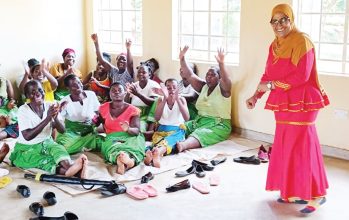Cotton can generate $424.3m—council
The Cotton Council of Malawi has expressed optimism that the industry can be revived and contribute to economic growth if government can pump in K19.6 billion to generate about $424.3 million in five years.
The council’s chief executive officer Cosmas Luwanda said this in Lilongwe on Tuesday when the Cotton Council of Malawi appeared before the Parliamentary Committee on Agriculture to explain efforts being made to revive the cotton industry.
He said the council has developed a five-year plan aimed at boosting production, exports, creating jobs, empowering farmers financially and promoting food security.
Said Luwanda: “The challenge of forex we are facing now, cotton is the answer, but we have not paid sufficient attention to the crop. Cotton can generate substantial amounts of forex into the country if we can support it adequately.”
According to the council, with a K19.6 billion injection spread over a period of five years, the council projects to increase production to 100 000 metric tonnes (MT) per year by year five, which can earn the country $125 million and create 40 000 jobs through the value chain.
In the five years of production, total yield is estimated at 340 000MT and total earnings estimated at about $424.3 million.

“The proposed budget of K19.6 billion promises to set the country on a path towards reviving the cotton sector and, therefore, needs the commitment of government to actualise the transformation,” said Luwanda.
He added that there are about 300 000 farmers who can engage in cotton production and produce over 200 000MT of cotton.
“Farmers can produce such tonnage with support. Most farmers cannot afford the hybrid seed for cotton as it is expensive,” said Luwanda.
The council has since proposed a subsidy for cotton production, where 25 000 farmers benefit from inputs subsidy to produce 45 000MT in the first year.
The government input subsidy is being proposed as a transitional measure to boost cotton production.
Additionally, the council is also in the process of training farmers to multiply hybrid seed to make seed affordable.
Luwanda also called for the need for a structured market as is the case with tobacco, arguing it will provide increased investor confidence to adequately finance production.
In response, Parliamentary Committee on Agriculture chairperson Sameer Suleman supported the idea of subsidising cotton seed to enable more farmers grow cotton.
He said putting cotton seed under the Affordable Inputs Programme will help boost production, support business, create jobs and boost exports.
Meanwhile, agriculture policy expert Tamani Nkhono Mvula has cautioned the Cotton Council of Malawi against focusing only on increasing production, but to also ensure that there is a vibrant value chain.
In an interview yesterday, he said there is need to have factories that will produce clothes, cooking oil and other products from cotton.
Cotton production has been declining since the 2019/20 production year when the country produced 53 349MT which dropped to 20 878MT in the 2020/21 growing season. In the 2021/22 production year, 20 666MT was produced, while in the 2022/23 season, the amount went down to 13 822MT.
High cost of seed has forced most farmers out of cotton production, with the hybrid seed costing K32 000 per kilogramme.





